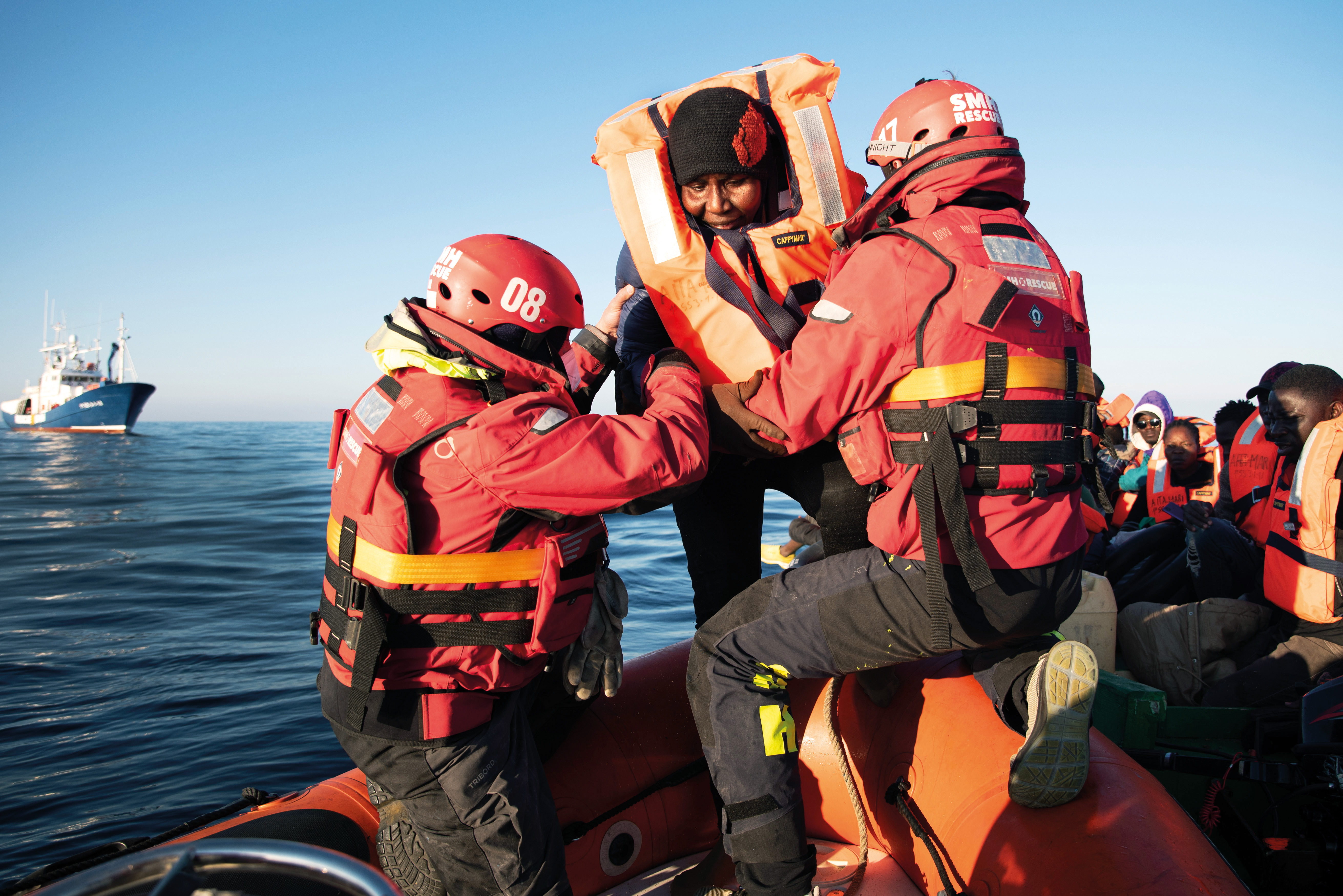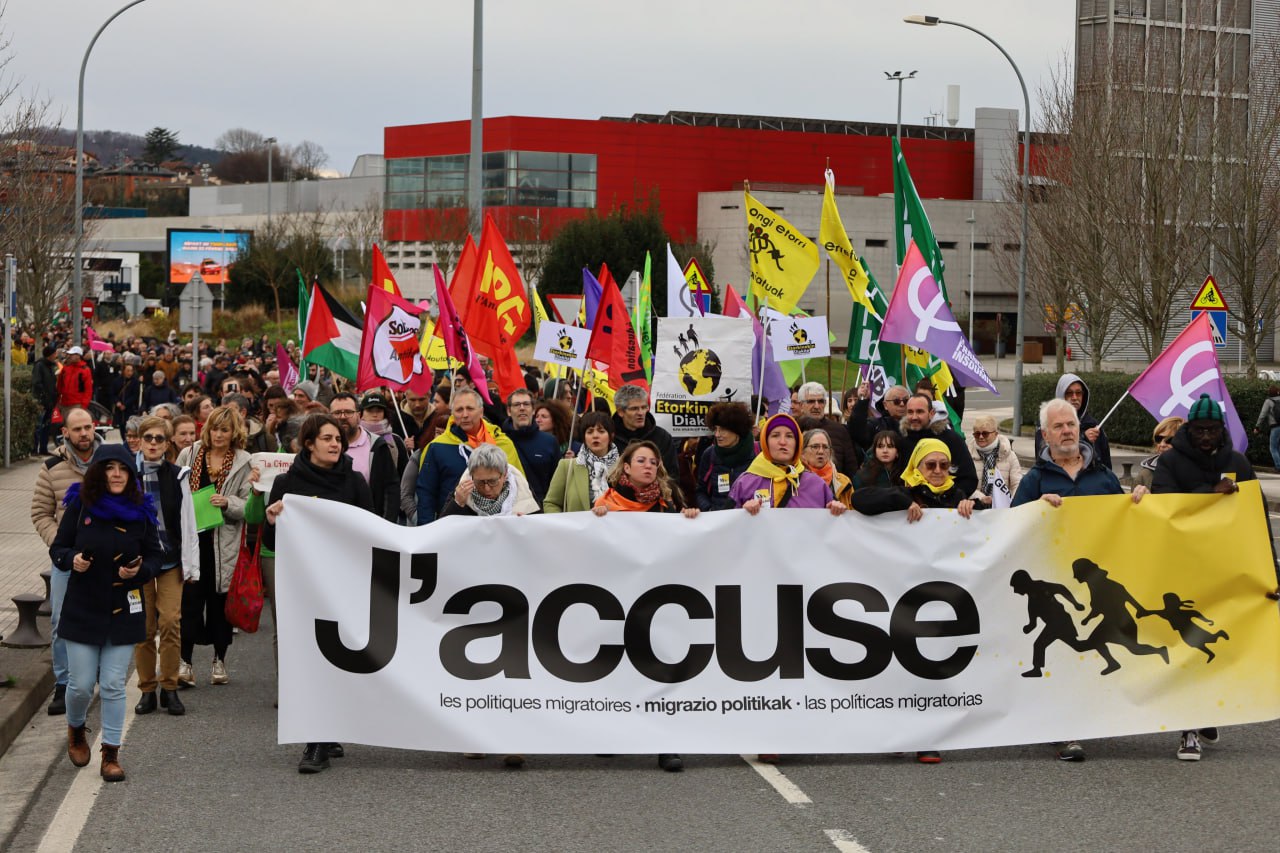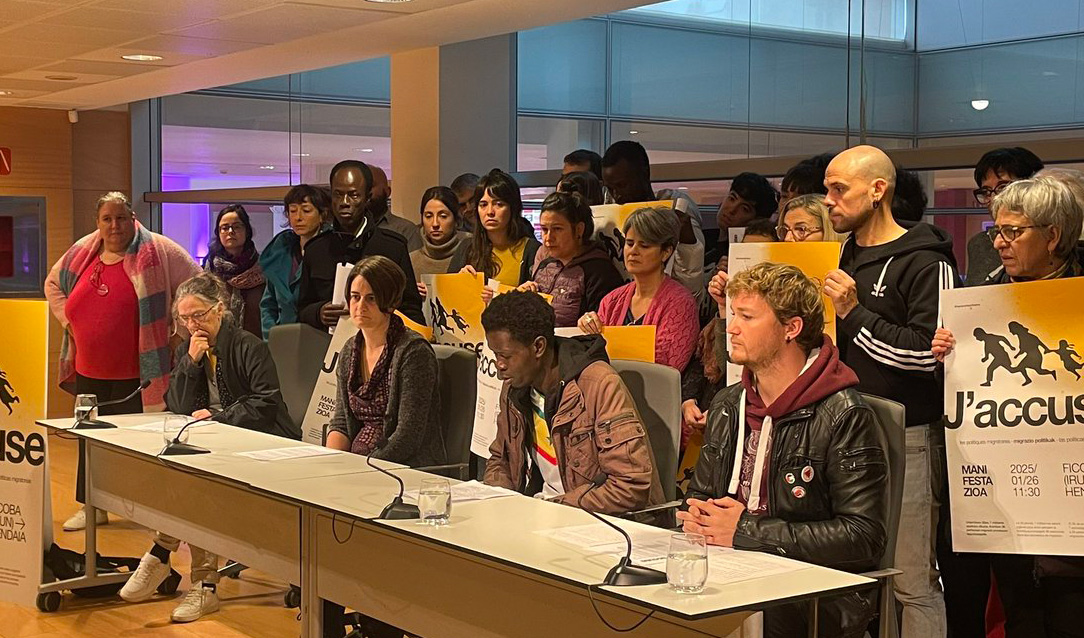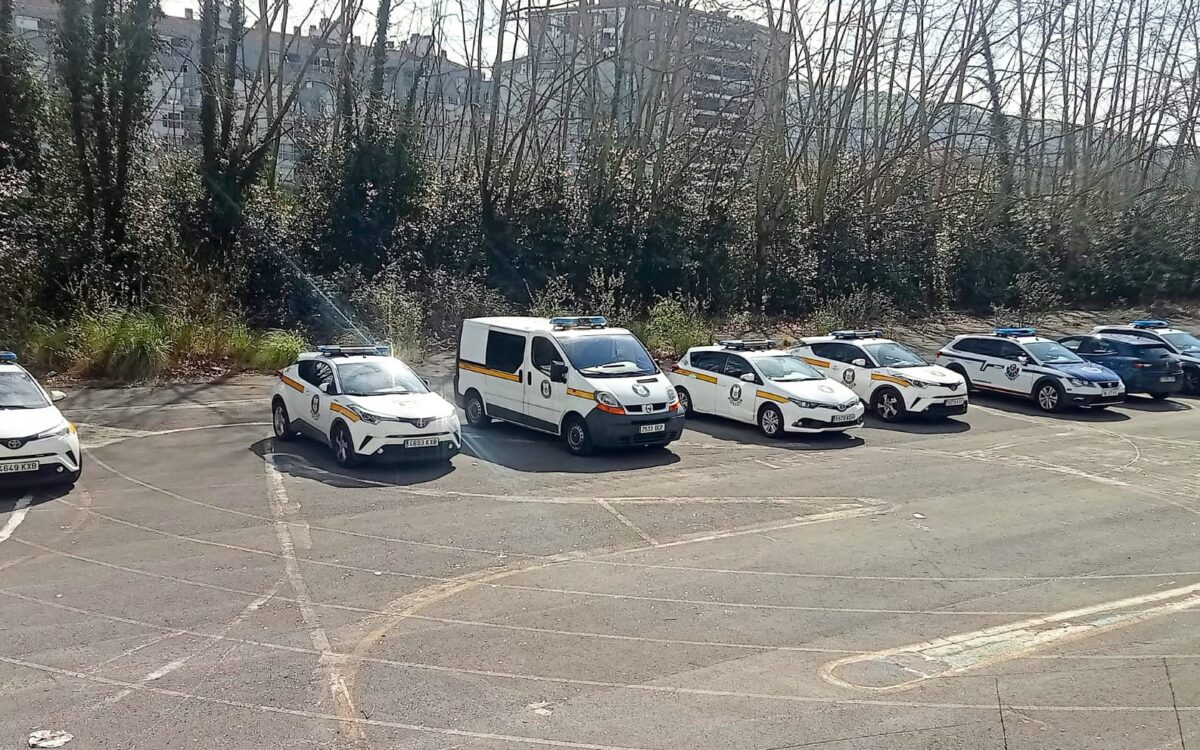European policy: not saving lives at sea, nor allowing others to leave
- She was Catalan, proud of her lungs, a singer who was supposed to be born in the Mediterranean; Serrat moved people’s hearts and managed to spread that pride among people who didn’t even touch those waters. But Joan Manuel's song lacked a sequel: the pass of a person drowned in that sea. And there would be no shortage, almost 26,000 in the last nine years. Because the Mediterranean, that temperate sea and a creative civilization, is also a murderer, a gigantic necropolis of thousands of people fleeing from the south. At the heart of this disaster are the boats of the humanitarian aid NGOs, in the game of the sinking of the fleet, trying to avoid obstacles and rescue people from the boats sinking in the Mediterranean. Meanwhile, Europe continues to turn its back on Africa, international law and human rights in general, such as the decree of the Italian Prime Minister, Georgia Meloni.

The members of the SMH rescue ship Aita Mari are now on this sea, which, despite its calm and warmth, has welcomed them violently and with waves of a couple of meters high. “We are in the waters of Search and Rescue, search and rescue. From this moment on we are on alert to rescue someone in danger”, the words of Mikel San Sebastián are heard between the sound of the engine. San Sebastian is a member of the rescue ship, which has just left the port of Castellón (Catalan Countries) to begin its new mission this year. And in that they are, in Italian waters, but looking at the African coast, circling the intangible border that separates them. They have rescued 71 people and followed 40 until the coastguards arrive.
“We are clear: we are not going to the sea because we want it, but to try to help people,” says San Sebastian. The border between Africa and Europe is almost invisible, so small. But it is a blind spot for international policies, and the authorities of one coast or another do not carry out their work, says Father Mari: “Oxala if the Mediterranean countries fulfilled their obligations and put in place all the operations available in search and rescue waters so that people do not run risks at sea.”
.jpg)
But that's not real. The reality is, like Father Mari, there are eleven other boats sailing through the creases of the map, saving lives. In the case of Father Mari, since his arrival in the Central Mediterranean in 2017 he has landed over 1,000 lives. “A percentage of the lives circulating in the Mediterranean are saved thanks to the fleet we travel in the rescue, around 10% of the total number of people saved. Moreover, some manage to save themselves, others are rescued by the Italian coastguards because they do their job. It might seem little, but it’s an important percentage,” says San Sebastian. Last year, for example, of the 105,000 migrants who arrived on land, 12,467 were saved by rescue boats, about 12 per cent.
Fighting the clock and government
This year’s first mission is Father Marin, the ninth since they began their career in 2017. In fact, they had to depart in October last year to undertake the third mission of 2022, with the rescue of 289 people in two other missions and the follow-up of 280. They were unable to carry out this third mission last year, as the port authorities in Castellón asked them to wait in the procedure to obtain the authorizations. “We were asked to delay departure to January. We knew that if we wanted to, we couldn't leave because we didn't have permission. We did not resist, we accepted the situation, but we were aware that this posed a greater risk for people at sea,” says San Sebastián.
“Rescue NGOs are trying to prevent traffic. We know that they want to cut this off, they never make the job easier for us.”
And it's no less, because the NGOs working in that sea know that their work is a time struggle. This year, in just two months, 4,500 migrants have been recorded on the Central Mediterranean route, in Father Mari’s working area, and a minimum of 104 deaths (in this figure there are no 70 migrants killed on 15 February in front of Libya). The clock is therefore an obstacle to their work, saving lives. But this is not the only limitation, far from it, because governments totally condition their role with multiple and restrictive measures and rules. “It is possible to set a plateau at all times,” says Father Mari.
Italy, the most restrictive policies
Italy is the clearest indicator of continuous obstacles, barriers and negatives, especially since the far-right reaches the government. Prime Minister Georgia Meloni, in October 2022, tightened his measures as soon as he took office. A month after taking office in November, it was limited to the arrival of four boats with a total of 1,000 migrants. “The boats asked for a port and at that time created a decree that these boats would only attract asylum seekers or people in vulnerable situations,” explains San Sebastian. This measure, contrary to international law, had to be rejected by the government and allowed to attract it. However, there was a ship, Sos Mediterranè, which returned to the ports of the French State, at the request of Prime Minister Emmanuel Macron.
.jpg)
This first action by Meloni raised an alarm among the humanitarian aid organizations, which understood it as a direct obstacle to their work. And they were not wrong, because Melon strengthened his attitude on 2 January 2023: in a new decree he has completely limited his activity. “Every time a rescue is made we are awarded a port and we are required to go there, without a delay, that is, we cannot stay in that area to see if there are other boats in danger,” explains Aita Mari’s colleague.
This will significantly affect the work of the NGOs, on the one hand, because time is greatly appreciated and, on the other, because it is common that when leaving to rescue, migrants are received from various boats. According to San Sebastian, “We usually do a rescue and go directly to the port, we have capacity for 150 people. But in June of last year, for example, we carried out four consecutive rescues, because the situation led us to it: in the first we took eleven, then seventeen, 40 and 45. We were rescuing for four days, and now surely we would not have been able to do so, because when we gave the port we have to go there.”
Reduce the number of rescues with the new decree and increase the berth time of rescued
This is another stumbling block of this new law: the location of ports. “They give us the port quite fast, but far away. Previously, it was normally administered in Lampedusa, in Sicily. Last time, the MSF boat was delivered to Ancona, to the north-west, four or five days of sailing.” This can reduce the number of rescues and take longer to dock the rescued.
.jpg)
But that is no small thing, and the decree also requires that “the new decree obliges us to inform people about asylum applications”. This would be additional work for the crew of rescue boats, who receive people from different countries and languages, and who do not always have the resources to do so. “We have taken all possible measures, but the UNHCR itself has also said that the crew of a ship does not have the resources to do so. The rescue ends with the attractiveness of the people, and we understand that there must be the entities that will inform them in better condition.”
The NGOs have responded to the decree because the anger is obvious: “They try to avoid the traffic of the rescue NGOs. We know that they want to cut this off, they never make it easier for us to do the job,” says San Sebastian. In fact, nineteen have already met to combat the international institutional decree, denounced that the new decree will result in more deaths and confirmed that they will continue to save lives. The same has been said by San Sebastian: “If there is a warning that we are heading towards the port, international law forces us to help us.”
Europe, accomplice
Italy is today the face of exclusive European policies. But its influence is not limited to Europe, but it also has contacts in Africa. The major African migratory waves reaching Europe today are mainly from Libya. But those who arrive are only a small percentage of those who do so, because of Libya’s own policies, which are supported by the European Union. “Italy has given several boats to the Libyan coast guards to radically cut the arrival of migrants,” said Father Mari. When he talks about cutting off the arrival of migrants, he talks about returning them, about immediate expulsions.
.jpg)
“The waters of Libya return migrants to the country, to Libya, but this country is not safe: there is no democracy or stability. International law does not allow a smoked person to return to their country if the country is not safe,” says San Sebastian. Meanwhile, the European Union has donated €700 million to Libya to help migrants: according to EU data, between 2017 and 2021 they rescued 88.000 migrants in the country.
Half of these figures show another reality: the Italian Government has signed an agreement with Libya to guarantee access to Europe for gas. A contract of $8 billion was signed in January, one week before this agreement was signed with Algeria to build a 284 kilometre gas pipeline. “Italy wants to build an energy bridge between Maghreb and Europe, but it has not occurred to it to create a humanitarian bridge for those fleeing Libya, let alone,” San Sebastian said.
Tip of the iceberg
Father Mari works in the Central Mediterranean, where most migrants traveling from Africa to Europe do so. Most of them leave the ports of Libya, some also from Algeria, to Italy and Malta. The times of the Eastern Mediterranean, in which millions of refugees arrived on the Turkish and Greek coast, where the migratory flow has fallen considerably, have remained behind, but continue to exist.
However, now the flow center is the Central Mediterranean. However, for many who come to it is the last part of the journey. “People flee from Africa on very dangerous journeys, many of them have been in the desert for years or through other roads: the sea is only a small percentage of it,” says San Sebastian. In other words, before reaching the Mediterranean, hundreds of migrants would be on the way, although there is no concrete evidence of this; those who have reached the sea are a small part of those who started the journey in their country of origin. The sea is the last push, a supposedly quiet and hot sea.
.jpg)
Data on migrants shows this long year trip to which San Sebastian refers. In fact, the road to the Central Mediterranean is the sum of many nationalities. This year's data, although only for the last two months, show that most migrants come from Côte d'Ivoire, where nearly 900 people have already arrived. They are followed by Guinea, Pakistan, Egypt and Tunisia. Apart from the latter two, the Central Mediterranean is thousands of kilometres from Côte d'Ivoire, Guinea or Pakistan, from which the largest migrants arrive, after a journey of thousands of kilometres and long years.
And they flee because they want to find a better life, that's what Father Marin has seen: "People try to find a better life, fleeing from the hell in which they live; many who come to Aita Mari say they don't want to fight, they want to study, they want to work." However, the situation in which they live is far from expected: “They are very hard testimonies, and we must understand the situation of people making such a decision, it is inevitable to find a better life. But many of those who have made this decision would not repeat the journey, prefer to die, all this suffering does not deserve them.”

This situation shows the discrimination of international policies, according to San Sebastian: “With the war in Ukraine we have seen the discrimination that has occurred. Asylums, movements of people, humanitarian corridors, freedom of movement to protect themselves from pumping have been simplified and allowed. And then there are other countries, like Syria, Afghanistan, that don't have that possibility."
Serrat sang to the sea, to its colours and to its hundreds of villages: from Algeciras to Istanbul, he said. He did not say, however, that Algeciras was not the same as Istanbul; Lampedusa or Tunisia. They are all Mediterranean, but some are blue and wide seas, other shipwreck and graveyard. “Migration is a right: it doesn’t depend on where you were born or your money,” says Mikel San Sebastián. It is no accident that Serrat is Catalan, born on the good side of the Mediterranean; the sea and its journey can be pleasurable or nightmare, depending on where it goes, where it looks.

Zutabe hau idazten nengoela, gaia aldatu behar izan dut, nire arreta osoa harrapatu dutelako Trumpen muga-zergek. Azalpen gutxi beharko duzue, leku guztietan da berria, Txinako produktuei %10eko zerga eta Kanadako eta Mexikoko produktuei %25eko muga-zergak jarri dizkie. Trumpek... [+]
To be honest, I don't know why I'm writing this. In today’s hostile environment, opinions of this kind are not well received. Perhaps LUZ will not publish this because it does not correspond to the opinions they have published so far (but if they have finally decided to publish... [+]
We Basques move our feet behind the witness of Korrika to proclaim that we want to survive as a Basque people in favor of our language, with the aim of the Basque Country we desire.
The tipi-tapa is the first step taken by a migrant person who leaves his homeland in Africa,... [+]




















-(1).jpg)
.jpg)